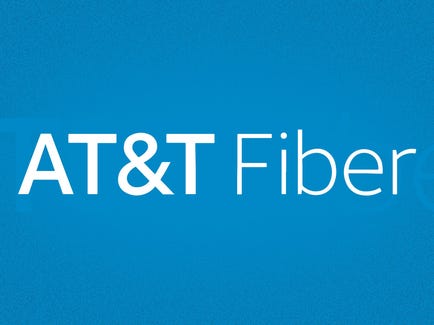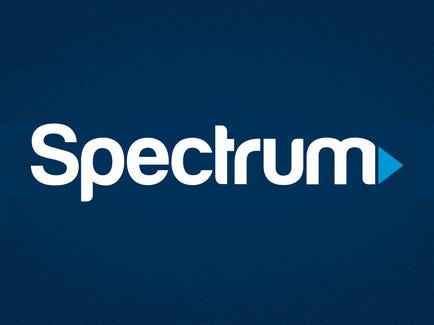AT&T vs. Spectrum: Which Is Best for Your Home's Broadband Connection?
While both providers offer fast speeds and reasonable terms, choosing between them might depend on the availability at your address.


AT&T and Spectrum are two of the nation's largest home internet providers. Each provider offers service to more than a third of the US population, and coverage from the two companies overlaps throughout much of the South and Midwest, as well as in parts of Texas and California.
This means you might be faced with choosing between AT&T and Spectrum for your home's internet connection. If that's you, and you're looking for a breakdown of how the two providers stack up, you're in the right place. Keep reading for a look at each company's coverage map, plans, prices, terms, fees and customer service track records.
AT&T vs. Spectrum
AT&T
Fiber service is tough to beat
Our take - If they're available in your area, AT&T's fiber plans are top-notch. They feature symmetrical speeds, no equipment rental fee, and no contracts or data caps. The average cost per megabit per second is about 10 cents across all tiers -- and is impressively even cheaper for the multi-gig plans (if they're available in your area).
Spectrum
Consistent cable connection
Our take - If AT&T Fiber is unavailable at your address, Spectrum will likely offer better value. None of Spectrum's plans will cost you more than 27 cents per Mbps after the first year.
The FCC map shows AT&T coverage (in blue) alongside Spectrum's availability areas (in red).
Where do Spectrum and AT&T offer home internet?
Though they aren't available everywhere -- well-established satellite providers like Viasat and HughesNet are the only ISPs that can make that claim -- both AT&T and Spectrum offer coverage in multiple regions throughout the US.
Locating local internet providers
On AT&T's end, the map stretches through 21 states, with service focused across the Gulf Coast and up through the Great Lakes, as well as much of California. With Spectrum's sprawling cable empire, you'll find service available in parts of 41 states, except for Alaska, Arkansas, Delaware, Iowa, Oklahoma, North Dakota, Rhode Island, South Dakota and Utah (as well as Washington, DC). Note that Hawaii isn't on that list -- Spectrum does, in fact, provide internet service to the Aloha State.
Plans, speeds and monthly costs
Time for the nuts and bolts. Both AT&T and Spectrum offer a variety of plans throughout their respective coverage areas. Spectrum's offerings are pretty straightforward, so let's start there.
Locating local internet providers
Spectrum Internet plans and pricing
| Plan | First-year promo rate | Regular rate | Max speeds | Equipment fee | Contract | Data Cap |
|---|---|---|---|---|---|---|
|
Spectrum Internet Read full review | $50 | $80 | 300Mbps download, 10Mbps upload | Modem free; $5 for router (optional) | None | None |
|
Spectrum Internet Ultra Read full review | $70 | $100 | 500Mbps download, 20Mbps upload | Modem free; $5 for router (optional) | None | None |
|
Spectrum Internet Gig Read full review | $90 | $120 | 1,000Mbps download, 35Mbps upload | Modem free; $5 for router (optional) | None | None |
Source: CNET analysis of provider data
As you can see, you'll find three plans to pick from with Spectrum, with download speeds ranging from 300Mbps up to 1,000Mbps. Note that the upload speeds are much slower -- that's a quirk of cable internet, which doesn't offer matching, concurrent upload and download speeds like a fiber connection will.
Spectrum plans don't require any contracts, but your monthly price will go up by $30 after the first year. On the plus side, Spectrum's internet plans don't come with many additional fees, save for the relatively low $5 equipment rental fee, which you can skip altogether if you're using your own router.
AT&T Internet plans and pricing
| Plan | Max speeds | Promo price (first 12 months) | Regular monthly cost (after 12 months) | Equipment fee | Data Cap |
|---|---|---|---|---|---|
|
AT&T Fixed Wireless Read full review | 25Mbps download, 1Mbps upload | $70 | $70 | None | 350GB |
|
AT&T Internet 10 Read full review | 10Mbps download, 1Mbps upload | $55 | $70 | None | 1.5TB |
|
AT&T Internet 18 Read full review | 18Mbps download, 1Mbps upload | $55 | $70 | None | 1.5TB |
|
AT&T Internet 25 Read full review | 25Mbps download, 2Mbps upload | $55 | $70 | None | 1.5TB |
|
AT&T Internet 50 Read full review | 50Mbps download, 10Mbps upload | $55 | $70 | None | 1.5TB |
|
AT&T Internet 100 Read full review | 100Mbps download, 20Mbps upload | $55 | $70 | None | None |
|
AT&T Internet Air Read full review | 40-140Mbps download, 5-25Mbps upload | $55 | $55 | None | None |
|
AT&T Fiber - Internet 300 Read full review | 300Mbps download, 300Mbpsupload | $55 | $55 | None | None |
|
AT&T Fiber - Internet 500 Read full review | 500Mbps download, 500Mbps upload | $65 | $65 | None | None |
|
AT&T Fiber - Internet 1000 Read full review | 940Mbps download, 880Mbps upload | $80 | $80 | None | None |
|
AT&T Fiber - Internet 2000 Read full review | 2Gbps download, 2Gbps upload | $150 | $150 | None | None |
|
AT&T Fiber - Internet 5000 Read full review | 5Gbps download, 5Gbps upload | $250 | $250 | None | None |
Source: CNET analysis of provider data
The list of AT&T plans is a lot longer because AT&T uses a mix of technologies to deliver different plans in different parts of its coverage map. As of June 2021, the FCC listed AT&T as providing a high-speed fiber connection to about 33% of its customers. An AT&T spokesperson told CNET that the company's fiber footprint has grown since then, but wouldn't share a more up-to-date figure.
AT&T offers a much slower DSL hybrid service called ADSL that augments the traditional phone-line approach with copper cabling for regions where fiber is unavailable. AT&T also offers fixed wireless service in some parts of the country.
That methodological mix means that AT&T's speeds, plans and prices will vary wildly depending on your location. If AT&T Fiber is available in your area, you could sign up for symmetrical upload and download speeds of 300Mbps for $55 per month, which is less than you'd pay for AT&T's fixed wireless plan, which offers download speeds that top out at 25Mbps and uploads that only hit 1Mbps. Meanwhile, AT&T ADSL subscribers will start at $55 per month regardless of the actual speed that's available at their address. Depending on the location, that speed could be anything from 10Mbps to 100Mbps.
Like with Spectrum, AT&T internet plans don't require contracts -- but with AT&T the price only goes up after 12 months with the ADSL plans. Even then, the jump is less severe than you'll see with Spectrum -- expect to pay an additional $15 per month after the first year for an AT&T ADSL plan. Another point for AT&T Fiber plans: There's no automatic price hike after the first year.
Are there other terms and fees to expect?
Spectrum plans come with a free modem, but you'll need to pay an extra $5 per month to rent a router that lets you connect wirelessly over Wi-Fi. You can skip the fee if you swap in a router of your own. Meanwhile, AT&T skips the equipment rental charges completely.
Beyond that, here's a quick run-through on the rest of the fine print.
Installation and activation fees
Spectrum suspended in-home professional installation due to the pandemic so the typical installation fee of $60 doesn't currently apply. Instead, new customers can request a self-installation kit for $25.
AT&T charges $99 for professional installation, though it often waives this fee as part of its online promotions. You can also request a self-installation kit, but it isn't available at every address, so you'll need to check with AT&T for eligibility.
Data caps
Spectrum doesn't enforce data caps on any of its plans, so you can surf, stream and download to your heart's content without fear of incurring a fee or seeing your speeds throttled. Give Spectrum a gold star for that -- especially since data caps are definitely a thing with other cable internet providers, namely Comcast Xfinity and Cox.
As for AT&T, the company boasts unlimited data with its fiber plans, which is great -- but ADSL and fixed wireless customers aren't so lucky. With those plans, AT&T enforces a data cap of 1.5 terabytes (1,500GB). Once you use more data than that in a given month, you'll incur charges of $10 for every 50GB of excess, up to a maximum penalty of $100.
The good news is that there are ways to dodge this data cap. Your first option is to pay an extra $30 per month to upgrade your plan with unlimited data. The second (and for most customers, better) option is to get unlimited data at no extra charge by opting for AT&T's home internet and TV bundle.
How do AT&T and Spectrum's customer satisfaction marks compare?
According to the American Customer Satisfaction Index, which runs yearly surveys across various product and service categories to gauge -- you guessed it -- customer satisfaction, the ISP category is having a hard time. Still, it saw a 6% increase from 2022 to now. On the whole, customer satisfaction with their internet provider came in at 68 out of 100 in 2023, which is above last year's 64 out of 100.
So how did our two providers of note finish? AT&T earned a score of 80, which put them first amongst other fiber providers, like Verizon Fios and Google Fiber. Other providers were at least a two point difference from AT&T, and the average score for fiber providers was five points less than AT&T's score.
Spectrum, meanwhile, came in just below average with a score of 64. That's two points less than the average score for non-fiber service providers in 2023. However, it beat Frontier Communications and CenturyLink's satisfaction score, which might indicate some positive momentum.
Separate customer satisfaction data from J.D. Power & Associates seems to back that up. In the company's 2022 study of ISP satisfaction, Spectrum finished with a below-average score in each region polled. Meanwhile, AT&T finished with the top score among all ISPs surveyed in the South and West regions, earning an overall average of 738 out of 1,000. Spectrum's best finish was in the South, earning a score of 719, just beneath the regional average of 730.
Summing it all up
AT&T and Spectrum both offer home internet service to a significant percentage of the US population, and their footprints overlap in several regions. If you're choosing between the two, be sure to check whether or not AT&T offers fiber connections at your address. Those will provide you with the best upload and download speeds at the best price. If not, you'll likely be better off with Spectrum, as AT&T's ADSL and fixed wireless plans aren't a great value and come with a monthly data cap to boot.
AT&T vs. Spectrum FAQs
Are AT&T and Spectrum the same company?
No. AT&T is one of the largest telecom companies in the world and its internet service is available to over 40% of the US population, according to the FCC. Spectrum is no slouch either. It is owned by Charter Communications, which is the second-largest cable company in the US, and its internet connections reach over 33% of the country.
Does AT&T have faster plans than Spectrum?
Technically speaking, AT&T has the fastest plan between the two providers, offering a 5Gbps fiber plan in over 100 cities across the country. Spectrum, which traffics in cable internet connections, maxes out at 1 gig. However (and there's almost always a however when we're talking about broadband), not all of AT&T's internet connections are fiber broadband. Over half of AT&T's footprint consists of slower DSL connections, which top out at around 100Mbps. That means in those areas, Spectrum will offer faster plans.
Which provider is better, AT&T or Spectrum?
You may sense a theme here, but the better provider depends on what's available at your specific address. If your household is serviceable for AT&T Fiber, that'll be your best option. You'll find better value (a lower cost per Mbps) with AT&T Fiber plans and faster speeds. However, if AT&T's DSL or fixed wireless is all that's available to you from that company, then Spectrum should get your attention with its more consistent and reliable cable internet plans.
Home Internet Guides
- Sometimes a provider is available in your Zip code, but not at your exact address
- See what exact plans are available at your home




